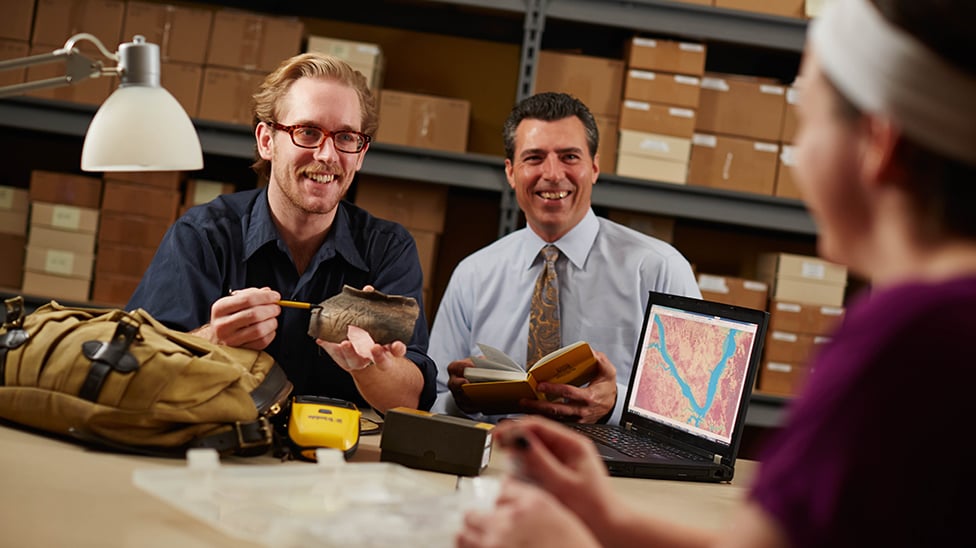
Anthropology
Careers in Anthropology
Anthropologists find careers in government agencies, education, healthcare, corporate management and forensic investigation, offering valuable insights through their holistic understanding of human behavior, cultural diversity and biological adaptation. Their training also serves as a strong foundation for advanced studies in health professions and biological sciences.
- Advocacy (Human Rights/Social Justice)
- Cultural Resource Management
- Community Development
- Education/Outreach
- Environmental and Natural Resources
- Evaluation/Assessment
Potential Salary
Median Salary $63,800
Anthropology Degrees at MSU
Anthropology, Bachelor of Science
Anthropology is the study of what makes us human. Anthropologists take different approaches to understand how humans interact with each other and the world around them. Anthropology careers include work in community organizations, museums and government agencies, among others.
Anthropology, Minor
Anthropology is the study of humans. The discipline includes archaeology, as well as cultural, biological and linguistic anthropology. An anthropology degree prepares students to work in community organizations, museums and government agencies, among others.
Geoarcheology, Certificate
This certificate prepares students to be highly competitive as they further their education or in the job market in archeology, geography and geology.
Museum Studies, Certificate
We welcome students interested in all types of museums including history, technology, science, art, special topic or themed museums, historic sites, national parks and zoos, and those interested in exhibitions for corporations, government agencies and private organizations.
Applied Anthropology, Master of Science
Applied anthropologists work to solve real-world problems using anthropological methods. Career paths include working for non-profit agencies, museums and community organizations, among others. Jobs for applied anthropologists have shown strong growth as a result of their valuable skill sets.
- This program is closed for admissions, effective for fall 2025, and will merge into the Applied Geosciences & Anthropology, MS. Please contact the Graduate Studies Office with any questions, (grad@mnsu.edu).
Museum Studies, Graduate Certificate
We welcome students interested in all types of museums including history, technology, science, art, special topic or themed museums, historic sites, national parks and zoos and those interested in exhibitions for corporations, government agencies and private organizations.
Anthropology, Bachelor of Science
Anthropology is the study of what makes us human. Anthropologists take different approaches to understand how humans interact with each other and the world around them. Anthropology careers include work in community organizations, museums and government agencies, among others.
Anthropology, Minor
Anthropology is the study of humans. The discipline includes archaeology, as well as cultural, biological and linguistic anthropology. An anthropology degree prepares students to work in community organizations, museums and government agencies, among others.
Geoarcheology, Certificate
This certificate prepares students to be highly competitive as they further their education or in the job market in archeology, geography and geology.
Museum Studies, Certificate
We welcome students interested in all types of museums including history, technology, science, art, special topic or themed museums, historic sites, national parks and zoos, and those interested in exhibitions for corporations, government agencies and private organizations.
Applied Anthropology, Master of Science
Applied anthropologists work to solve real-world problems using anthropological methods. Career paths include working for non-profit agencies, museums and community organizations, among others. Jobs for applied anthropologists have shown strong growth as a result of their valuable skill sets.
- This program is closed for admissions, effective for fall 2025, and will merge into the Applied Geosciences & Anthropology, MS. Please contact the Graduate Studies Office with any questions, (grad@mnsu.edu).
Museum Studies, Graduate Certificate
We welcome students interested in all types of museums including history, technology, science, art, special topic or themed museums, historic sites, national parks and zoos and those interested in exhibitions for corporations, government agencies and private organizations.
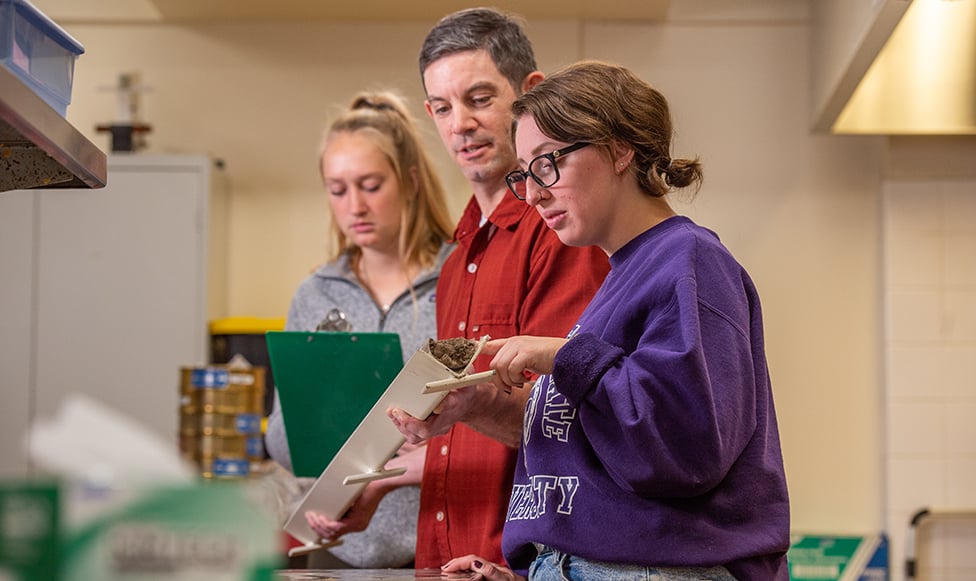
EARTH Systems Lab
The interdisciplinary lab at Minnesota State University, Mankato combines Earth Science, Geography and Anthropology to prepare students for careers in academia, business or government. Students engage in hands-on research to understand natural processes and their impacts on humans through modern and ancient timescales. Research areas include archaeology, soils, climate change, geomorphology, natural hazards and human-environment interactions.
Learn More
Archeology, Geography and Earth Sciences (AGES) Club
The mission of the AGES Club is to provide students interested in the fields of archeology, geography and earth sciences with opportunities for relevant field experiences, training and networking. We provide students with the necessary assistance to develop academically and professionally within the field. We are open to all students, no matter their level of interest or background.
Anthropology Real-World Experiences
Go beyond the classroom. Apply your knowledge by working at an archaeological dig site, connecting with immigrants and refugees in our local community or learning how to work with human bones at crime scenes.
Related Programs
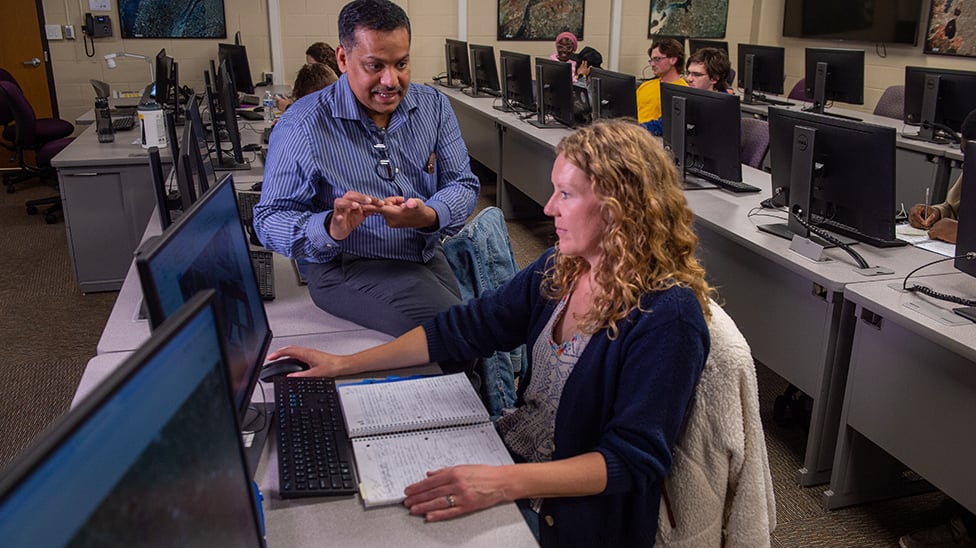
Geography
Geography studies the interactions between people and our environment, and it uses cutting-edge geospatial technologies to solve real-world problems. Geospatial technologies equip students with high-demand skills for the workforce.
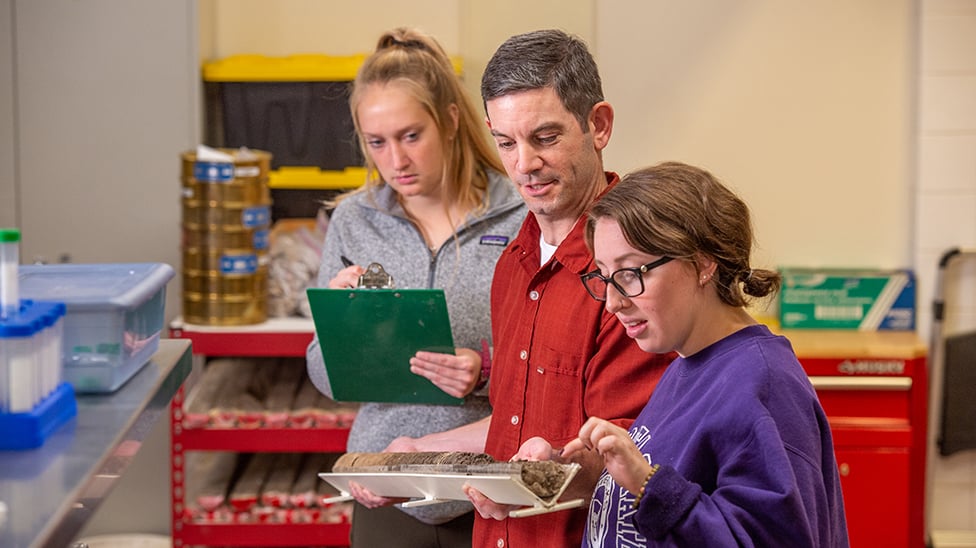
Earth Science
Earth Systems Science is a STEM field that utilizes our understanding of the various interconnected systems on Earth to address major environment problems of our time.

History
The History program prepares students for the future by helping them understand how the past affects the present and develop critical thinking and rhetorical skills. Our graduates are poised to become leaders, teachers, lawyers and more.
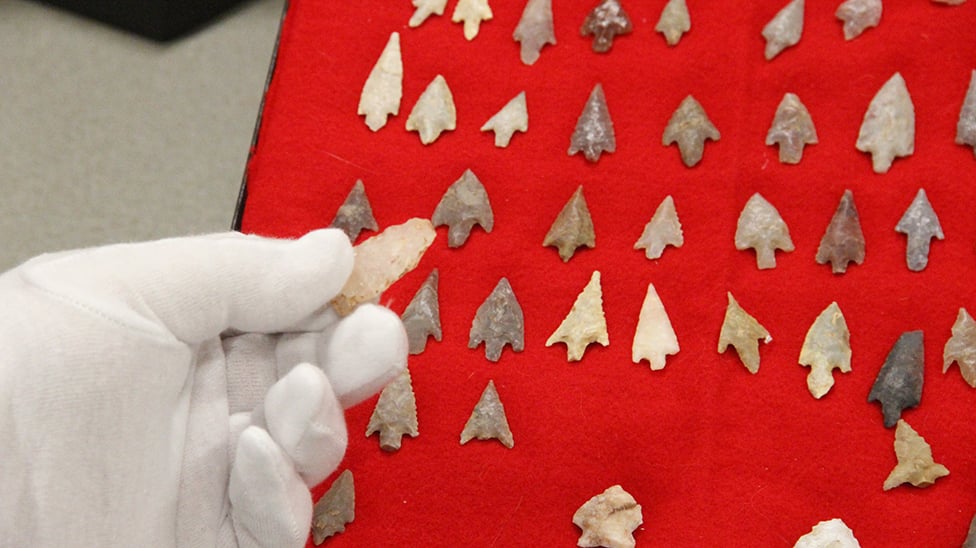
American Indigenous Studies
American Indigenous Studies is an interdisciplinary program that provides a broad understanding of Native Americans, especially the Dakota, and their respective ways of life in the past, present and future.
Department of Anthropology
College of
Humanities and Social Sciences
The College of Humanities and Social Sciences is an inclusive community of diverse learners seeking to examine, engage with and transform the social world while nurturing creativity and innovation. Our programs build a foundation of knowledge that adapts to a constantly changing society.
Learn More About the College of Humanities and Social Sciences
